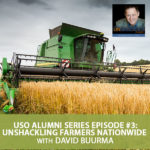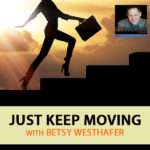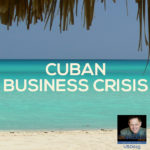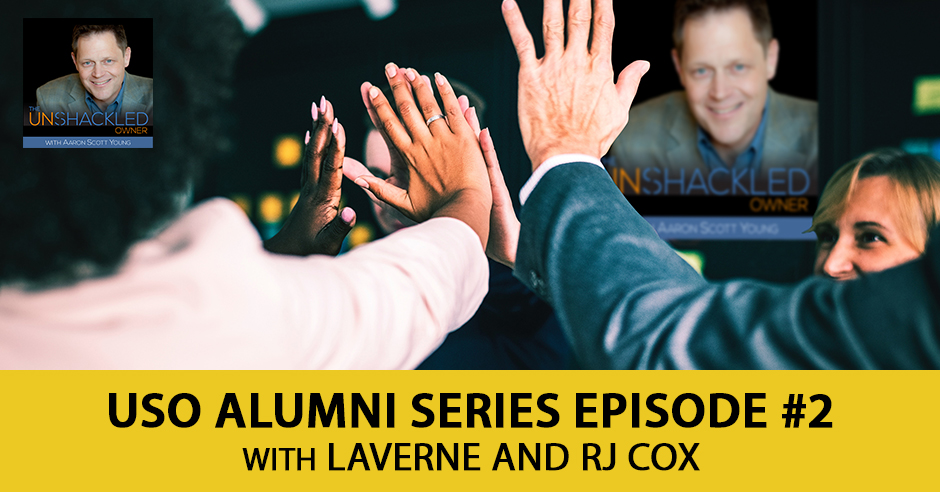
It’s important to have a plan and to find something you can fall in love with. Laverne and RJ Cox both found a neighborhood that meant something to them and saw that it wasn’t being realized for what it could be. After searching for opportunities and making a few missteps, they finally found a way to go out and revitalize struggling neighborhoods and make a difference for the people. Laverne and RJ Cox talks about how it all began for Evergreen Investment Realty. RJ is a Georgia real estate broker with over twenty years’ experience in the asset, and investment brokerage management industry. Laverne co-founded Evergreen Investment Realty with RJ, and is a graduate of Baruch College with a MBA in Organizational Management with a specialization in Entrepreneurship and a Bachelor’s in Finance from Hofstra University.
—
Listen To The Episode Here
USO Alumni Series Episode #2 with Laverne and RJ Cox
I have Laverne and RJ Cox. This is a great couple who are doing some cool things in real estate. They’ve got interesting stories to tell. Full disclosure, these are clients of mine and friends of mine. They’ve been through the Unshackled Owner Program. They’ve attended workshops, master and all that stuff. First of all, I welcome you both. How are you?
Thank you. We’re both doing well.
I thought who better to bring on here than the people that I’ve already been working with who are doing super cool stuff. I’m going to ask questions and you can jump in. First of all, how long have you guys been working together?
I believe that is an interesting story in and of itself, but the reason that we are even on the podcast together is that it seems like we’ve been a lifelong partnership in the making from the time that we were possibly born. We met twenty years into our life. It seemed like it was meant. I was born on the block that he lived, which is odd. Twenty-one years later, we got married. That’s how connected our partnership really is.
You’ve been cosmically connected for a long time. When I say cosmically, you could say, spiritually or whatever. I’m saying there’s been something there that had you on this inevitable track to be together and to do your business together.
Throughout the many different businesses and the different ventures that we’ve been on, one way or the other, we’ve always been supporting each other. The opportunity came for us to get into this business together. It’s been working out so much better than we ever imagined so far and we are looking forward to the next level.
Laverne, you said you were born on the block that RJ was living on, how did it all start? Where were you born? What kind of circumstances did you grow up in? How did that influence the things you’re doing now in business?
I was born in a little hospital in Brooklyn, New York in the ‘70s. After the great turmoil in the ‘70s, there was a white flight and there was a great move. A mass of the population was leaving New York City and a lot of hospitals ended up closing. The hospital that I was born which later became a school was on the block that my husband came to live on. He was living there for close to fifteen to twenty years of his life. It’s very ironic that we would meet later on in life and then share similar paths and similar desires. When we connected close to twenty something years there later, both RJ and I were in school. I was graduating from my Alma Mater, Hofstra University. We connected on the passionate pursuits of elevating our community. Seeing how we can redevelop the burnout buildings that we had grown up being. Unmasking hidden potential in those assets and revitalizing our community.
You’re saying that you were born at a time when there was a lot of turmoil in those neighborhoods in that part of the city or maybe in the whole city. The ‘70s were a tough time in New York, in all the boroughs. New York was having a hard time in the ‘70s. There were bankruptcy and all kinds of crazy stuff. Are you saying that you grew up in neighborhoods that became abandoned to a certain extent? You said the word burned out. What do you mean? Describe the situation and either that you started out in or as a graduate from college. You were looking now back nostalgically at those neighborhoods and going, “What happened?” What was it?

Revitalizing Struggling Neighborhoods: As long as there is the opportunity and the willingness to transform that potential into actionable steps, we can activate a new level of growth and experience.
I didn’t actually grow up in the neighborhood with the burnout buildings. My parents moved closer to the suburbs. We were still in New York City. I was born and raised and treasured in Brooklyn, but we were closer to the suburban side of it. Canarsie, Brooklyn, when I was growing up was an Italian neighborhood. There are a lot of single-family homes and a lot of family businesses. I was nurtured in that entrepreneurial environment. There was a small industry all around where I grew up. I grew up on a block where every next-door neighbor was running an independent business of some sort. Every person that I knew and every environment that I walk through was entrepreneurial growing up. RJ, on the other hand, lived on that block where I was born. That area was known back then as Spain, Crown Heights. I think you were at East Flatbush as well and Park Slope, these areas had suffered a great decline as a result of the ‘70s. He grew up having a totally different experience than I did in respect to what was possible and what was actively being done in his community.
Like Laverne mentioned, my side of town was a little bit different. A lot of the folks there who were moving into her neighborhood have fled from the one that I grew up in. The street that I grew up on was more of an oasis of the surrounding areas where they still were enough owner occupants on the block that there was still that pride of ownership on the street. A lot of the folks that left, they were handing the keys to any neighbor that was left in town like, “You can have it. I’m out of here.” The local landlord owned one-half of the block. The other owner occupants stayed on the other side and everyone had their piece of the pie. You go a block in either the direction of where I lived, and you saw the difference where people left neighborhoods. No one was there to pick up. There were pieces of that house that became vacant.
When the window started getting broken into and you saw when appliances were broken out and roofs started caving in and you wondered, “What is the missing ingredient?” You couldn’t quite understand what their socio-economic factors were. You definitely knew that my street was different than these other streets. As we grew up, we kept looking around and wondering what can we do to help turn around these areas that we know and love so well and make them into your types of neighborhoods that folks like Laverne grew up in? Solid, middle-class neighborhoods where people were happy to come home to, business owners, blue-collar workers, solid middle-class neighborhoods that everyone was proud to call home and raise their families in.
RJ, where you were, was it like it had declined and now we had gangs and problems, or was it more like what happened in Detroit where people flat left? It wasn’t that there were so much negative influences, there was just no action. There is not much activity.
There was activity. Folks didn’t leave town like they did in Seattle where they said the last one out, turn out the lights. There was quite a lot of drug activity, some gang activity as folks who are willing to take advantage of all of that hidden space where they can do their activities without being noticed. It took about 25 years before that started to turn around. Those folks either were all imprisoned or they moved on to other things. Finally, people started to get back and started to buy back those old houses and renovate those houses. Usually, they were the children of the folks that grew up around us. They came back and said, “I’ve always liked this part of town. I want to come back and call it home.” Their property values were so depressed as opposed to the rest of Brooklyn, they were getting a great bargain, so they can take their money, invest it in maybe buying the local grocery store or back in the day, when there were video rental shops. They would open up those low businesses that added flavor, culture and vibrancy back to the neighborhood again. Everyone knew, “That was Joe. He used to grow up here. He went to school down there. Now, he’s got his business.” Slowly it started to turn around.
It makes it friendly. It makes it a walkable. It makes it like, “This is my place. I don’t have to go very far to get what I need.” You said at about twenty years old you came together. Where did you meet?
We met at church. We met through a friend at church. Interestingly enough along my journey, I knew that I had a passion and a pursuit to go after entrepreneurial activities. I knew that I wanted to partner with someone who has the same passion. My journey was not even thinking about finding a life partner that was so young. My husband is ten months younger than I, but my ideal in my mind was someone who would have been more seasoned. He would have been at least five to ten more years older than me. Someone who’s been a little bit more experienced in the world and business world and would have had some deeper connection with the things that I was passionate about and I’m wanting to pursue. Having a background in finance, I figured I was in the capital of finance. That would have been my natural next step. It’s so happened that when we came together, we found that we had similar ideals regarding how economic activity can promote a certain level of social justice, but also an opportunity for social improvement by collectively utilizing the resources of community members to impact the change.
We started by walking and then driving our neighborhoods. Looking at any burnout building or any distressed asset then that had been not taken by the city initially. Secondly, we went to assets that were taken by the city, things that have code violations. We would walk the block and start to track which assets in our neighborhood were undervalued and underappreciated. We started to look for opportunities where we could possibly partner with a local investment group or partner with someone that could lend on that particular asset, so we can do the development ourselves.
How old were you when you started to acquire assets?
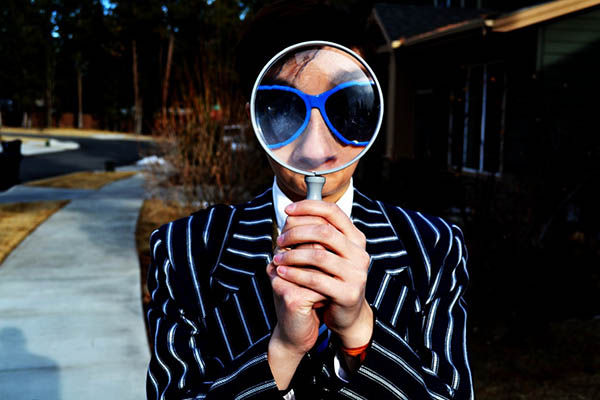
Revitalizing Struggling Neighborhoods: If you’re not really searching for what opportunities are available, you will never find them.
At the time, we were young and idealistic. We didn’t know a whole lot about how the business side of it worked. We hope that as we went along the way and we kept looking at properties and talking to folks that we would find somebody that would believe in the beauty of our communities and come into partnership with us. It’s a lot harder to find capital partners when you don’t have capital, you don’t have experience but you’ve got a lot of dreams. It did turn out that a lot of folks did see what we saw on these neighborhoods and did invest on their own. They started redeveloping the properties and they started moving into some of those houses. What we were desiring did come to happen. We didn’t have a financial stake in a lot of those transactions.
It’s hard to attract capital when you don’t have any way to have obvious skin in the game, you don’t have a real plan and you just have a lot of dreams. I meet so many would-be entrepreneurs who have identified a need. They see a situation that they know could be exploited for positive change. If they don’t have a plan, if they don’t have some money or if they don’t have some reason to be included in the game, they may be shut out of the game, which is what you found with you. People listen to you and said, “Maybe I’ll go drive over there and check it out.” They didn’t have any need for you because they could do it on their own. What did you have to do to get from there? Identifying opportunity but not being able to engage to the things that you’re doing now, which you’re so deeply engaged in the real estate industry. What had to happen? What had to change?
We moved to Atlanta. That’s the biggest part of it all.
You had to get out of New York and go to Atlanta.
It was something that Donald Trump had mentioned in one of his books saying, “If you’re finding it difficult to make your mark in that big city, go to a smaller town and you have a lot less competition.” As you start to build your goal advancing your broker business, now you get known as a deal maker. When you come back to the larger environments, people now see you have a track record to your name. My story was a little bit different. I was working with some local investors in New York and they started to see during 2007, 2008 that the prices that they were buying for one property for New York, you could have bought multiples down South. They said, “Atlanta looks like it’s going to be a great place to invest in, let’s expand and let’s go down South.” Lo and behold, we moved down, the family, U-Haul vans, the children, the whole nine yards and the great recession hits and everything turned into lemons.
Prices got a lot better.
They sure did but the folks who had money back then got wiped out.
It was super easy to make money in real estate up until 2008. If you could do anything, if you could even lock a place down, you could make money on it by flipping it. It started separating the real estate experts from the dumb luck people as we went into the recession and people started identifying opportunities.
That’s exactly what we fell into when we got into Atlanta. We found out the market has bottomed out. Where do we go? What do we do? When a lot of people were going down for cover, we doubled down and dove in because there wasn’t anything else that I knew how to do. I didn’t have any connections or any political capital. It was hustle, knock on doors, talk to people. It took a while to start getting folks to answer my phone calls and emails because they were like, “This guy is not from around here. He’s got this New York number. He’s got this funny Northern accent. We’re not calling this guy back.” Slowly the doors started opening and I started working with some brokers specializing in foreclosures.

Revitalizing Struggling Neighborhoods: There’s going to be challenges in anything that you put your hands to. You just have to persevere and have a deep belief in what you’re pursuing.
One day, I answered a Craigslist’s ad looking for folks who bid at the county auctions in Georgia Super Tuesday. It’s the first Tuesday of every month. That’s the mandated day for foreclosure auctions. Lo and behold, investors are coming in with a lot of money and they can’t possibly participate in every county’s auction and listen to every auctioneer. They hire folks who bid on their behalf. If you were in a bid, you raise your hand and they come running over. They pay with a cashier’s check and then they go back and wait for the next property. A couple of months that go by and I see another Craigslist’s ad asking to join in an investment team with a large brokerage out in Atlanta. I answered that ad. I went through the interview process and they said, “Let’s go talk to the team manager.” He walks in and goes, ” I remember you. You’re the guy I saw from the auctions.” Things started clicking from there. As we started working with one of those large institutional buyers, we become known from working with groups like the Blackstone and the like, other folks will come in and say, “You know what you’re doing in this industry. What can you tell us about our plans coming to Atlanta?” It kept going and growing from there.
Where does that leave you now? That was ’08, ’09. All of a sudden, now you’re in with groups like Blackstone. That’s a big deal. Where has that led you now? What did you learn through all this experience? That’s gotten you from big dreams to being a runner to service these big companies, to now running and growing your own empire, your own growing business? I know you’re looking at multiple states. Tell me what happened. It hasn’t been that long.
It’s been a bit of a whirlwind. Every time we sit down and think about it, we just say, “This is crazy how far and fast this has been going.” What happened was we took some time to step back and realize that, “We’re handling a lot of transactions. We’re getting this brand name with some of these larger companies, now how do you build a business around this? How do you bring it back to what we’ve always desired to do, which was to make that positive impact in our local neighborhoods?” We took what we saw folks who were raising billions of dollars to in terms of picking markets that they were wishing to invest in, setting up operations, deciding which areas they wanted to invest in and why they didn’t want to go into other areas.
We took some of that market with research and infrastructure and build the business supporting the local entrepreneur saying, “Joe, Frank, Mary, if you’re interested in getting into real estate, great. We can share the experiences that we’ve been doing for the X amount of years and give you some of those best practices. You don’t have to have billions of dollars in the bank account. You just have to have a desire to run the business the right way. We can walk you through how to do that.” Laverne has been so instrumental on our end and has been on her finance and operations side. I’m just by nature a deal maker. I love running the numbers, closing the deal, getting the check, doing it all over again and having a wonderful time doing it. If you want to sit me in a room and plan, organize and strategize, that’s what’s going to drive me up a wall. With someone like Laverne, who’s like, “I can do this. Lock me in a room with a bunch of books and a couple of legal pads and I’ll come out with the ten commandments of how to run a business.” It’s a perfect match.
We both played to our strengths and we both have that same vision in mind. When each one of us goes out to different events and we’re talking to local business owners and local real estate investors and we talk about why we do, what we do and how we do it. The folks amazingly have just been able to grab ahold of what we’re talking about and say, “That’s me you’re talking about. Let’s continue the conversation.” It’s been fueling growth and partnerships that we couldn’t even imagine a year ago.
I think at our core and at our growth trajectory, it has been a life-long lesson of untapped potential. Every person that we come into contact with has some level of untapped potential. The Blackstone has an untapped potential. These hedge fund groups that we work with, they have untapped potentials. What we have learned is as long as there is the opportunity and the willingness to transform that potential into actionable steps, we can activate a new level of growth and a new level of experience.
What Evergreen Investment Realty, which is our real estate brokerage that we do operate in the state of Georgia and Florida does, is we open up doors to real estate investments thriving in new asset class or new markets. When all these hedge funds come in, they do not know everything. Even with their millions of dollars behind them and well-educated Harvard brand operations, they still need to have a local person, a local representative to connect them with the off-market opportunities. The connections with local owners and the understanding of where they have not fully tapped into their full potential and growth is what we do.
We bet opportunities for them. We open doors for them. We make the bridge between what’s possible and what is realistic happens on every single sale that we transact on their behalf. At our core, if you want to know, how did we move from struggling and trying to figure it out on our own? We knew in our hearts that there was an untapped potential. That dream that we had when we were in Brooklyn and we saw those empty, burned-out buildings that there was a turnaround that was possible. It could happen in a very short amount of time with a little care and with the right ownership. Not only did we see that with our own eyes before it even happened. If you visit Brooklyn now, it is gentrified as most people say. What I’ve seen is the investment value in 2001 and 2002 when we were walking in and looking at a burned-out building that may be $100,000, $200,000 Brownstone. With just the right tier and the right positioning, those assets have now exponentially grown to ten times the worth that they were at that time. That really is possible for any person that we’re sitting in front of. If there are some additional untapped potential and an opportunity for a new level of exponential growth that we can all tap into and we love bridging that for people because we’ve done that in our own lives.
I love what you’re saying there because I think it’s true anywhere. You happened to be walking around Brooklyn looking at burned-out buildings and seeing the untapped potential. I was in Manhattan, but I was looking at a few Brownstones just for giggles when I was there and it’s crazy expensive. Freaking out of your mind $25 million worth for that Brownstone. Maybe over there, it’s a little lower but if that Brownstone’s $2 million, $3 million, $4 million, $5 million, that’s a big boost in price or value in fifteen years. Opportunity abounds. The fact is wherever we are looking for opportunity, there’s a good chance we’re going to find something that’s being underserved or that is not meeting the full potential of what it could be. When you say it requires you to be looking rather than blindly cruising through the neighborhood, you’ve got to be looking for opportunity. It’s not going to come up and smack you on the head.
It’s searching. For most people, they take the headlines of what’s in the newspaper, what’s coming across their social feed and that determines the parameters for what’s possible in their lives. If you’re not really searching for what’s the opportunities available, you will never find them. To me, when I see a headline, I’m just looking for the unsaid word in between those lines because there are some aspects of that story that has not been written.

Revitalizing Struggling Neighborhoods: Once we have the right partnerships and the right connections to bridging that untapped potential, that growth ultimately will be delivered.
I, ultimately, am looking to see how we can rewrite that headline and show a new level of experience, journey and a livelihood to people who did not perceive that that was possible. At my core, not only am I an entrepreneur, but I’m a dreamer. Ultimately, I’m always seeing that there’s something more that could be done and we are the people who make that happen. Entrepreneurs make untapped dreams and what people perceive as unrealistic appetite for innovation happen. I am constantly on the pursuit for what’s possible, “What is no one else seeing here and how can I be an asset and serve at a level that will generate a new experience in the market and in the lives of people?” That’s how I’ve been called to serve.
Now, you’re expanding. Are you working on opening offices in other states?
That’s correct. We call Atlanta home base, but we also have two additional locations in Jacksonville and in Orlando as well.
It’s time to take this and scale it. Is there any advice you’d give to anybody who’s trying to scale?
The first thing is to count your cost. Then when you do that, anticipate that it’s going to take twice as long and probably it’s twice as much money and effort to get it done. A lot of times even after all of the planning, something else is still going to come up and throw you for a loop. You still would have to persevere and fight your way through it to get to that finish line that seems so clear when you dusted off that plan and said, “We’re ready to go.”
That’s why it’s important to have a plan. That’s what we try to teach in the Unshackled Owner class is trying to give you the bones to build on. I love the message of this podcast though, which is find something you can fall in love with. You found a neighborhood that meant something to you and you saw that it wasn’t being realized for what it could be. You looked for an opportunity. You had a few missteps, but you finally found a way to start to go out there and make that difference for the people. Solve that felt need that most people just go, “Isn’t it terrible? Isn’t it horrible?” A few people, it’s the entrepreneurs, you guys are consummate entrepreneurs. You keep looking for a way because you see something that the rest of the neighborhood or the rest of the people don’t see. They don’t understand it. Then they go, “I could have bought that building. I could have done the same thing they did.” They didn’t see it. They missed it. Part of it is because they weren’t looking. They were just coasting through their day. Do you have any parting words of counsel for people?
My parting words are to persevere, you do have to have a deep belief in what you’re pursuing. There are going to be challenges in anything that you put your hands to do. There is a scripture that says, “You do it with all your might.” I’m a believer that if you’re going to do it, don’t make an excuse but learn how to do it correctly. The Unshackled Owner for me was an opportunity for me to connect myself with a group that taught us how to do our entrepreneurial venture correctly. We tried. We had a lot of ups and downs in our first ten years of working as entrepreneurs. We did not go the traditional route coming out of school. We went to the path of our dream. That meant that I served in multiple roles prior to working at Evergreen Investment Realty. Each role was preparing and positioning us to execute once we finally grew to a place that we were ready to work on a plan.
The Unshackled Owner class helped us to build that bridge to exponential growth in a very short period of time. We actualize upon what we’ve learned. We’ve seen the results of it. It’s been only a year to eighteen months since we’ve been in your class. We’ve got your feet to be honest. We have seen something that in most terms looked like it was a solopreneur venture turned into a ten-person office. We know that once we have the right partnerships and the right connections to bridging that untapped potential, that growth ultimately will be delivered. It will happen. We can say keep pursuing your dreams but ultimately, connect yourself with the right partnerships to develop that dream into a reality.
Eleanor Roosevelt has a quote, “The future belongs to those who believe in the beauty of their dreams.” For a long time when all you’ve got is that light at the end of the tunnel, hold onto that. As you know that dream on the inside of you is real, start to seek out people who can help bring that dream to fruition. For me, that was the biggest benefit from the Unshackled Owner classes, from the different meetings with San Diego. Going to folks who were five, ten years ahead of where we were looking to be in saying, “These are the mistakes I’ve made. Don’t go that way. This is the path I took. Maybe you should take some advice.” Learn from those that were ahead of us on that path and go, “I get which way to go, what to do and what not to do.” Even in listening to the different recordings and the classes where Laverne was a deep dive studier. She would listen to everything, I would grab a nugget and put it to work.
One class spoke about, “What’s your superpower? What is it that you do that play for you and hard work for everybody else?” I said, “Let me figure that out.” For me that was a little bit of a struggle because I never thought of what I did as something super power-ish. It was just something that I like to do. The more you keep talking to people and go, “When you think of what I do, what do you see that stands out?” People just keep mentioning the same things. I said, “I get it.” I built a training program around that. As new agents came in, they learned how to do that off the bat and then we can figure everything else out. I wasn’t spending my days teaching the same two steps over and over again. They can do that virtually. Get that understanding, hop on and they can start hitting the ground running.
Even more than that, with the Unshackled Owner and the Magnify Your Wealth Conferences, getting in a room where you can see other people that think like you, dream like you and have built businesses like you, help you to feel a little less like that unicorn all alone on a stable horse. You will realize there’s a lot of other folks that feel like me. We’re not that crazy. This is something that’s doable. You go back home with a renewed sense of energy and vigor knowing, we may be crazy but there’s a world full of other crazy people. All we’ve got to do is just keep connecting the dots and having those conversations and then everyone else feels empowered. You come on and go, “I’ve always thought about doing this.” Then, “Maybe you should check this out. Maybe you should go here. Maybe you need to do that.” You see them six months later, a year later and they go, “Thank you for that.” Sometimes they take exactly what you said. Sometimes they research in a different direction altogether, but they took that path and they said, “I’m going to follow that pursuit. I’m going to follow that dream.” Those are going to be the folks that I work alongside, folks like you and I and Laverne make the differences in the community that we call home and make that a positive investment.
Thanks so much for talking about the class. My goal with the classes is to have those a-ha moments or that formula for you to follow. I always love hearing what it meant. You guys said some stuff that you’d never told me before that made me smile ear to ear. I’m super grateful that you guys would come on to the show. Thanks for talking about your journey. Thanks for talking about having your eyes opened to opportunity and then even imperfectly stepping toward it. Even your first tries don’t work out, eventually you find your footing and you start to do it. Now, you guys are not only in the real estate game, but you’re in the life-changing game. That is spreading and you’re helping other people. It’s fantastic. I’m so grateful that you guys would come on and share that story with everybody.
For all of you reading this, I love that you talked about the craziness. A lot of people are going to say that you’re crazy because they don’t see things the way you see them. You’re seeing a vision that most of your peers, most of your associates, most of your family members have no clue exists, but you see it. You see it because you’ve got some weird molecule afloat around in there, some gene that everybody else didn’t pick up on and that’s the entrepreneurial gene. If you have it, you cannot deny it. You can’t ignore it and eventually you’ll act on it. Don’t be afraid. Don’t think you’re too young, you’re too poor, you’re not situated right, you’re in the wrong tent. Don’t do that. Start acting on your dreams. Start having your eyes opened to an opportunity like RJ and Laverne have done. You’ll see that in a relatively short amount of time, your world can become dramatically different because you pursued that vision that you saw, that other people were missing. That’s a huge lesson on the path to becoming an Unshackled Owner. We look forward to seeing you again.
Links Mentioned:
- Laverne and RJ Cox
- Unshackled Owner Program
- Evergreen Investment Realty
- Magnify Your Wealth Conferences
About RJ Cox
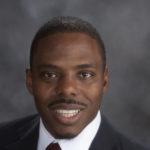 Evergreen Investment Realty is managed and owned by R. J. Cox a Georgia real estate broker with over 20 years’ experience in the asset, and investment brokerage management industry. He studied at New York University where he received his Bachelors in Real Estate Sciences with a specialization in Business Management. His desire to ensure real estate investments are done with an awareness to the benefit to an owner and end user speaks to his professionalism to advise for high quality investments with a commitment to a just impact in the world around us.
Evergreen Investment Realty is managed and owned by R. J. Cox a Georgia real estate broker with over 20 years’ experience in the asset, and investment brokerage management industry. He studied at New York University where he received his Bachelors in Real Estate Sciences with a specialization in Business Management. His desire to ensure real estate investments are done with an awareness to the benefit to an owner and end user speaks to his professionalism to advise for high quality investments with a commitment to a just impact in the world around us.
About Laverne Cox
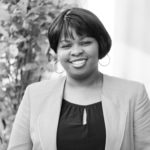 LaVerne Cox, co-founded Evergreen Investment Realty. As a graduate of Baruch College with a MBA in Organizational Management with a specialization in Entrepreneurship and a Bachelors in Finance from Hofstra University. LaVerne has worked to ensure Evergreen’s systems are crafted and maintained to support the vision and mission of Evergreen Investment Realty in unlocking real estate investment opportunities that position our clients’ investment portfolio to thrive. LaVerne’s experience as an Incubation Manger, and Organizational Management Consultant has prepared her as an excellent resource for our team’s development.
LaVerne Cox, co-founded Evergreen Investment Realty. As a graduate of Baruch College with a MBA in Organizational Management with a specialization in Entrepreneurship and a Bachelors in Finance from Hofstra University. LaVerne has worked to ensure Evergreen’s systems are crafted and maintained to support the vision and mission of Evergreen Investment Realty in unlocking real estate investment opportunities that position our clients’ investment portfolio to thrive. LaVerne’s experience as an Incubation Manger, and Organizational Management Consultant has prepared her as an excellent resource for our team’s development.
- AaronScottYoung.com
- The Unshackled Owner Twitter
- The Unshackled Owner Facebook
- Aaron Scott Young LinkedIn

